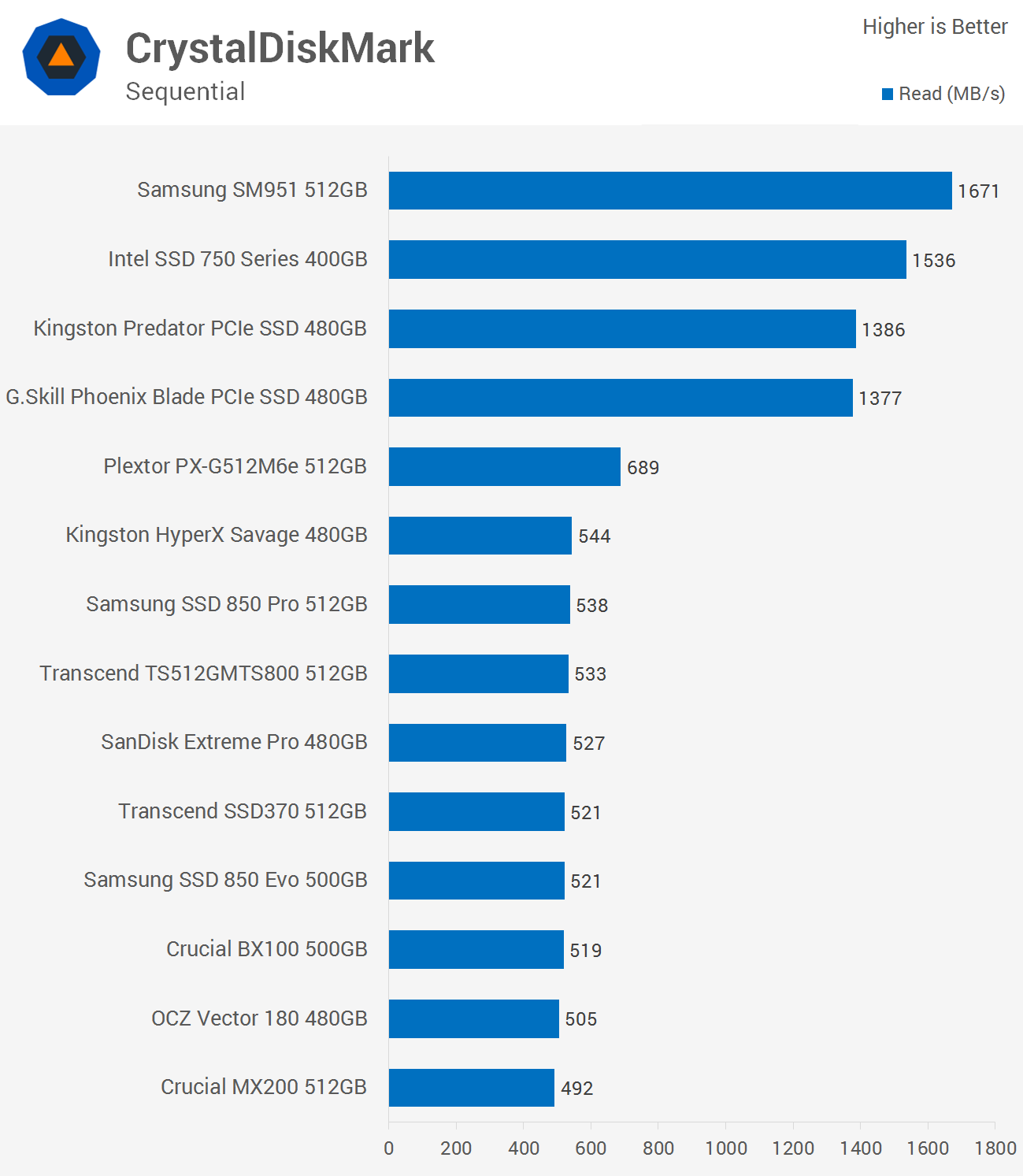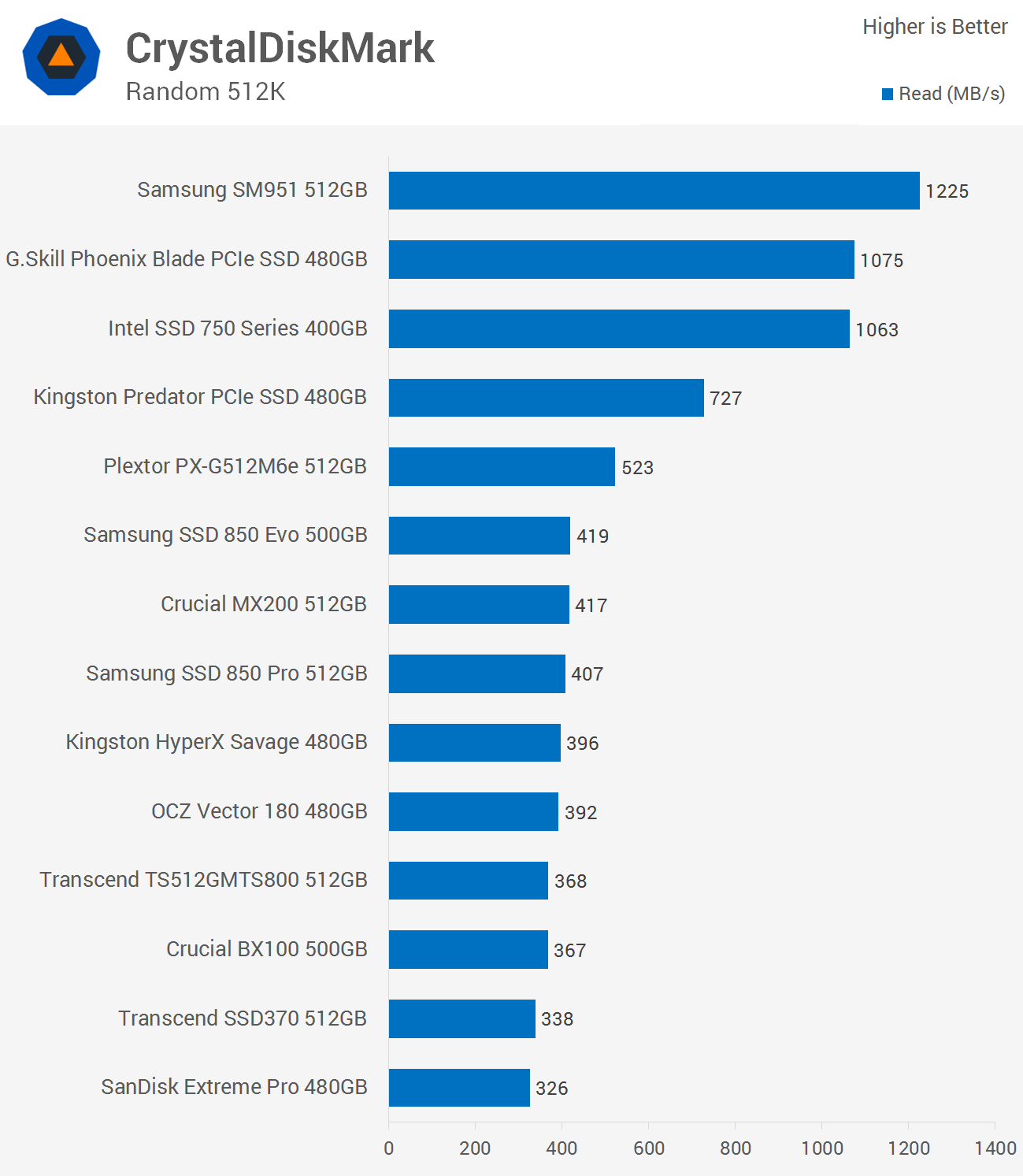Benchmarks: CrystalDiskMark 3.0

The SATA SSDs are limited to less than 550MB/s when measuring sequential read performance while the Plextor PX-G512M6e was able to reach 689MB/s. The PCIe SSDs more than doubled the bandwidth of the SATA models as the G.Skill Phoenix Blade and Kingston Predator just fell short of 1.4GB/s.
Meanwhile, the Intel SSD 750 Series broke through the 1.5GB/s barrier while the Samsung SM951 reached 1.67GB/s.

The sequential write results told a similar story and this time the SATA SSDs were limited to around 500MB/s. The Samsung SM951 managed an impressive 1.55GB/s followed by 1.3GB/s for the Intel SSD 750 Series. Meanwhile the G.Skill Phoenix Blade and Kingston Predator both reached 1GB/s.

The Random 512K read performance placed the Samsung SSD 850 Evo and Crucial MX200 ahead of the Samsung SSD 850 Pro, though there was very little in it. Here the Kingston Predator is considerably slower than the G.Skill Phoenix Blade which was able to match the Intel SSD 750 Series. Still, it was the SM951 that provided the best result.

The random 512K write test saw the G.Skill Phoenix Blade and Kingston Predator double the performance of a SATA SSD while the Intel SSD 750 Series was almost 300MB/s faster again. Tthe SM951 reached 1.55GB/s or 268MB/s faster than the SSD 750 Series.

The SM951 didn't dominate the random 4K performance as the Intel SSD 750 Series was fastest here, albeit by just 1MB/s. The only SSDs to really struggle in this test included the Transcend SSD370, OCZ Vector 180 and Crucial MX200.
That said the Kingston Predator and G.Skill Phoenix Blade were surprisingly slow as well.

The Intel SSD 750 Series again came out on top when evaluation random 4K performance, managing 112MB/s which was slightly faster than the 109MB/s of the Samsung SM951. The G.Skill Phoenix Blade also did well with 102MB/s while the Plextor PX-G512M6e delivered 88MB/s. The Kingston Predator again suffered in the random 4K test, delivering just 49MB/s.
